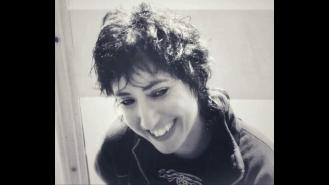
Shafilea Ahmed, a victim of honour abuse
When a person vanishes into thin air, and looks likely to have been killed, the police have to maintain the most cool-headed professionalism to resolve the mystery, even as the victim’s family deal with the emotional devastation. But what if those very loved ones turn out to be culpable?
The word ‘ideology’ is key here, presenting a thorny issue for police and social services in the UK, who must tackle the scourge of honour killings while also being sensitive to the religious and cultural context of this ideology. They have to tread carefully while investigating a community – most often Muslim – that’s already marginalized and subject to racism.
Shafilea’s parents, who claimed she’d run away, were savvy enough to weaponize the issues of race and religion, claiming they were being unfairly suspected because of being Muslim. It was only years later that they were convicted thanks to the testimony of another daughter, Shafilea’s sister Alesha, who told police the squalid story of how an argument over Shafilea’s ‘Westernised’ choice of clothes led to her parents holding her down and choking her to death with a plastic bag, right there in the living room in front of their other children.
As is so often the case with honour killings, Shafilea had already tried to extract herself from the toxic household, running away from home and even telling social services that she was being beaten at home. Yet, like other victims of honour-based violence, she later downplayed the issue when speaking to a social worker, presumably because of her ingrained loyalty to her family. It must have been a hellish psychological tug-of-war – the pressure to conform and be loyal, versus the sheer desperation that led her at one point to drink from a bottle of bleach (her parents told hospital staff it was an accident, and it wasn’t investigated further).
The agonizing inability to escape a situation which you know full well may destroy you is something shared by many victims of honour-based crime. Take the case of Banaz Mahmod, an Iraqi Kurd who was strangled to death in London in 2006 on the orders of her own father and uncle. Her crime was her desire to leave her abusive arranged marriage. In the lead up to the murder, she had contacted the police for help, and even gave an interview in hospital after smashing a window to escape from her murderous father. The police dismissed her allegations as a warped fantasy.
There appears to be an apathy from the CPS when prosecuting cases where Asian women are victims of honour-based violence.
In 2016, a whistleblower named Det Sgt Pal Singh spoke out about the serious failings of the authorities when it comes to investigating honour-based abuse. ‘There appears to be an apathy from the CPS when prosecuting cases where Asian women are victims of honour-based violence,’ he said. ‘A conviction could lead to unrest in the affected community but if they discontinue a case they know most victims won’t complain due to their vulnerability.’
Could the phrase ‘honour killing’ itself, as a categorization, be partly to blame by bathing such crimes in a problematically political light? In 2017, MP Nusrat Ghani called for the phrase to be dropped from official documents, because it leads to a politically correct queasiness when dealing with the crimes, and ‘intimidates the agencies of the states in pursuing and prosecuting these violent crimes’. She suggested that ‘honour’ came with too much cultural baggage, providing a kind of cultural rationalization for ‘what in our society we should call quite simply murder, rape, abuse and enslavement.’
However, others have disagreed, with women’s rights campaigner Diana Nammi saying that honour-based violence IS fundamentally distinct from other kinds of domestic abuse, and that this official categorization is needed so that specific risk factors can be assessed by the authorities.
It’s also important to note honour-based violence isn’t a phenomenon limited to one religion or culture. In 2018, Thomas Ward – a member of the travelling community – was jailed in Manchester for brutally beating his niece after realizing she wanted to leave the community and live with a man of her own choosing.
In 2011, a Sikh resident of Telford named Gurmeet Singh Ubhi was convicted of killing his daughter Amrit, for the all-too-familiar reason of 'Westernisation', and the fact she’d dared to fall in love with a non-Sikh. It’s perhaps significant to note that he was already known to have a savage temper, having served years in prison for stabbing and almost killing his wife. Similarly, Shafilea Ahmed’s father had also been known for his sudden and explosive bouts of violence, long before killing his daughter.
Such human failings – the private resentments and rages of certain troubled individuals – are perhaps just as critical to the understanding of honour killings as religious traditions or cultural conservatism. It’s these dense, dark layers of complexity that authorities must probe if they are to end this epidemic of violence in Britain and beyond.







